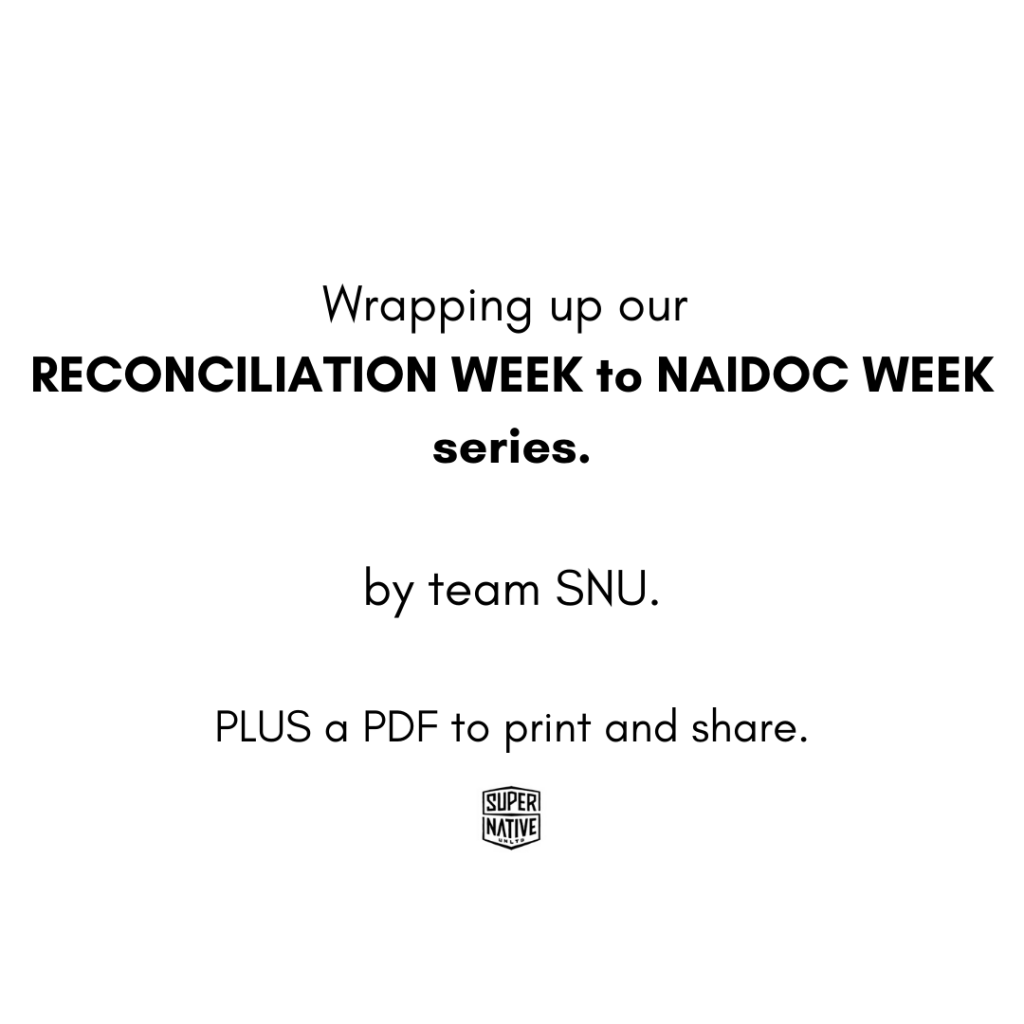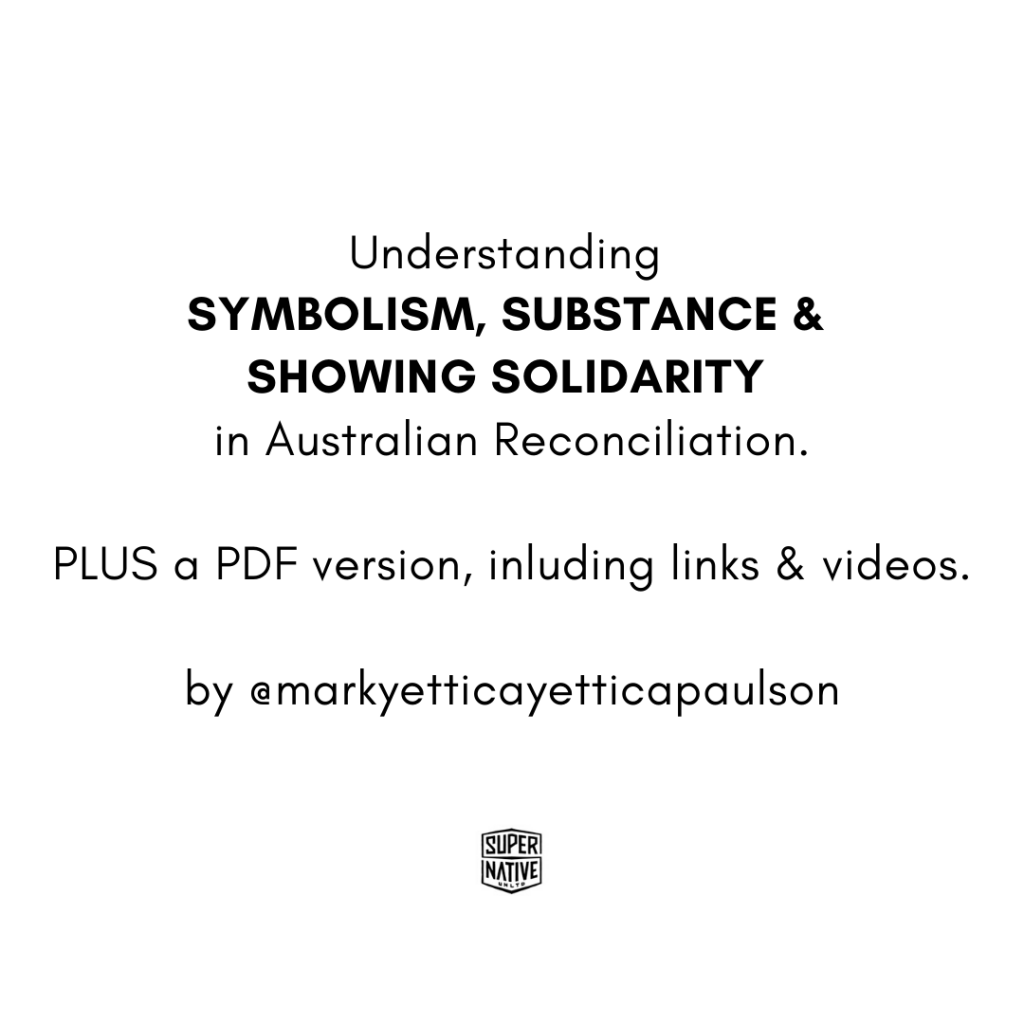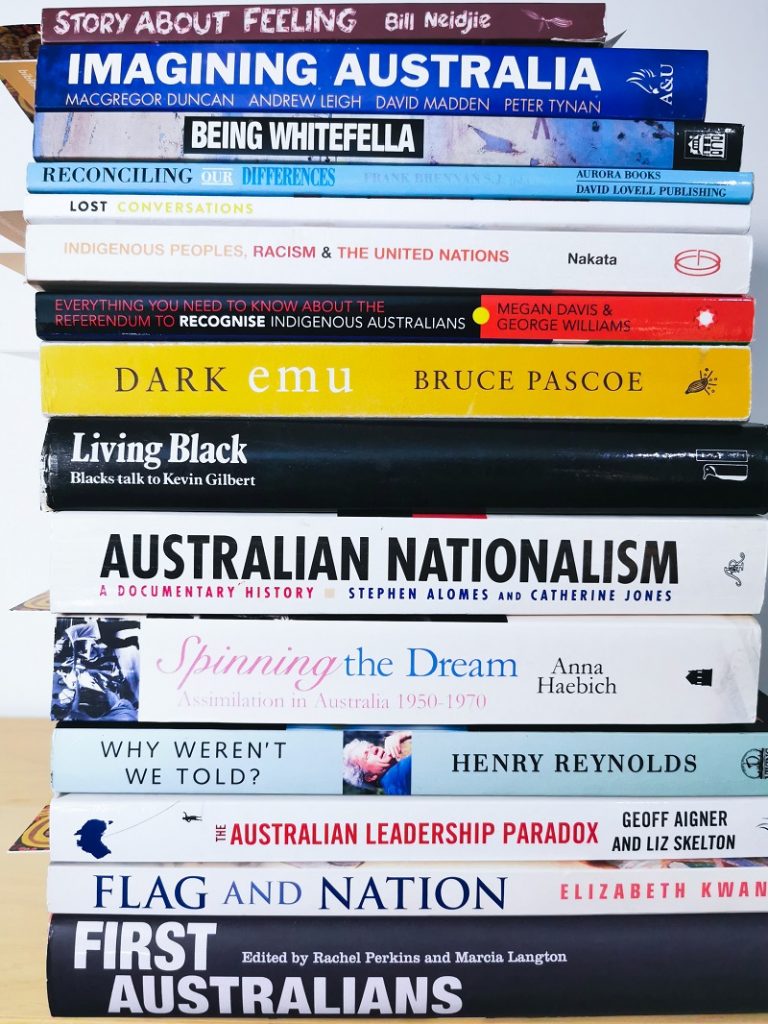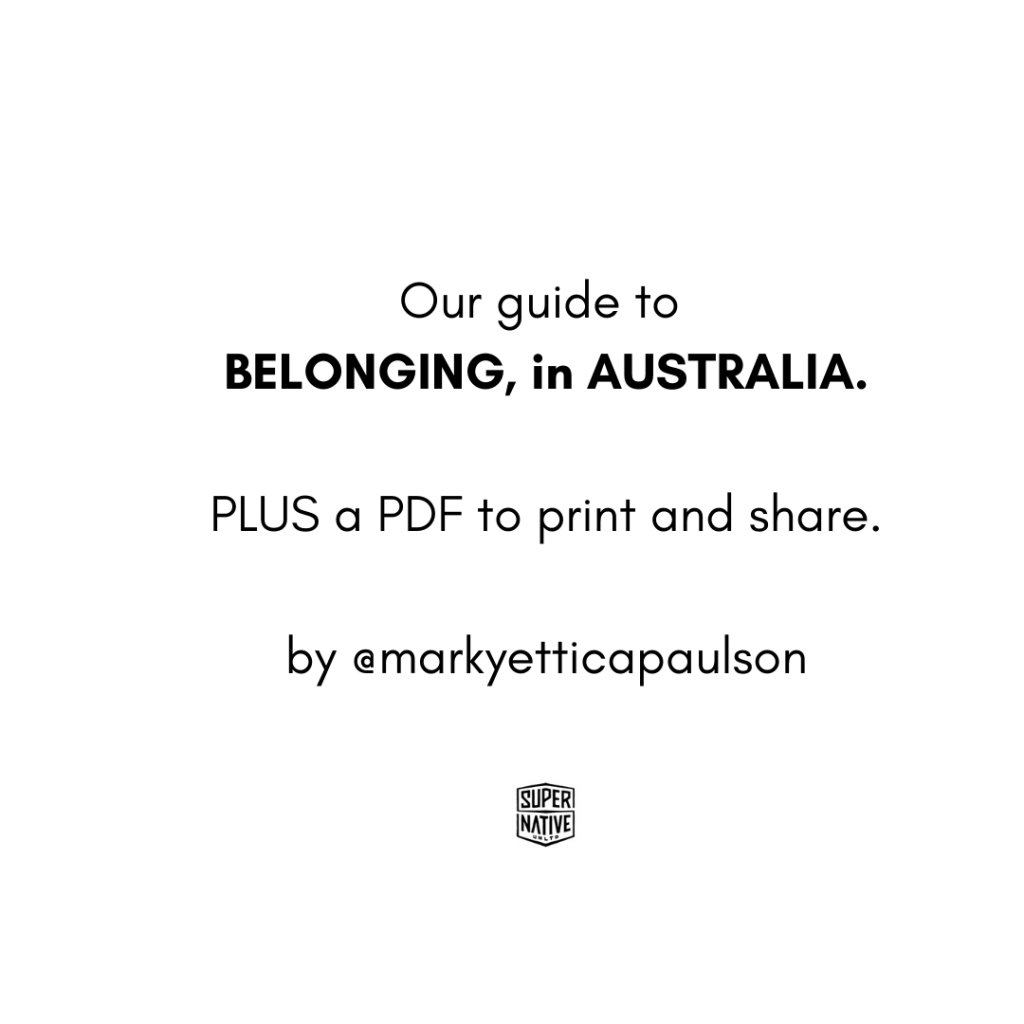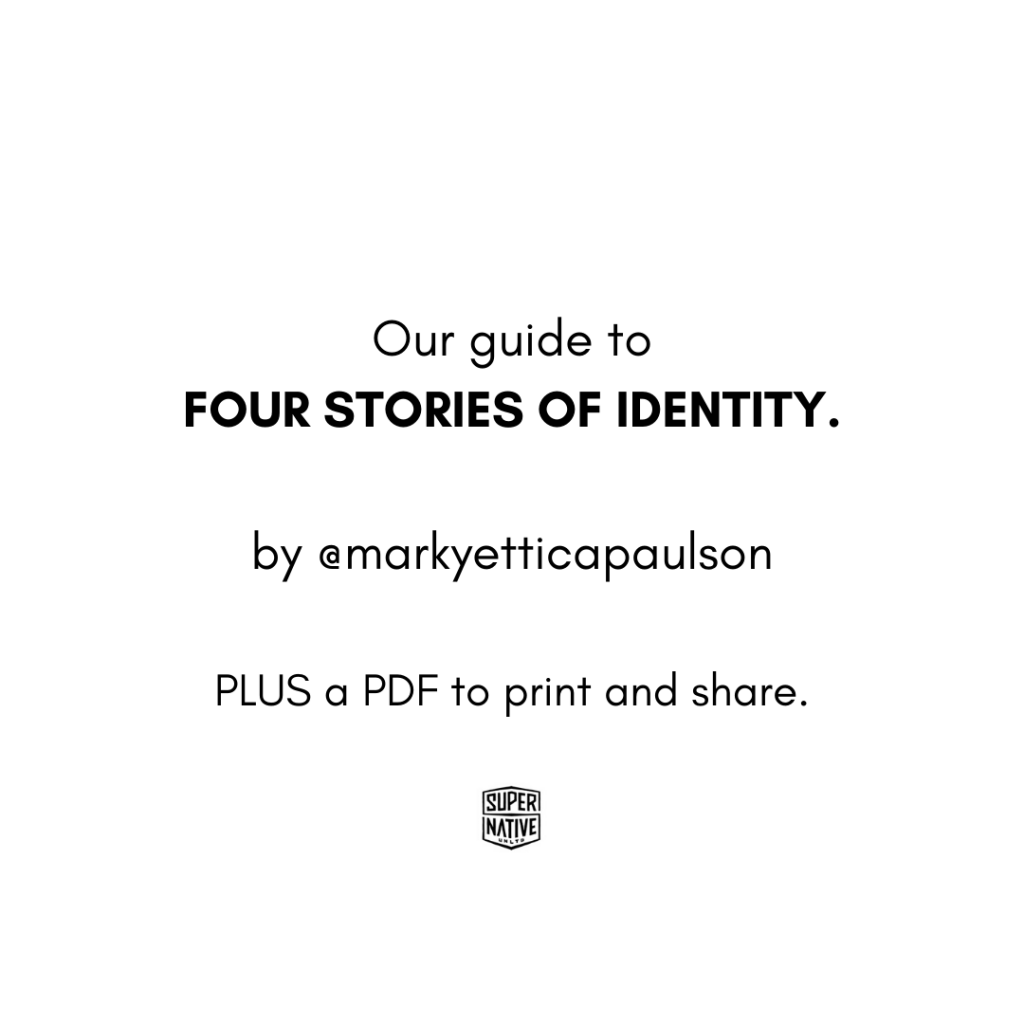This is our final blog post and PDF in our Reconciliation Week to NAIDOC Week series of ideas on belonging and practical steps. We’re proud to share with you a recap of the tips for action from our last 5 guides.
Between Reconciliation Week in May and NAIDOC week in July (normally this time, but changed this year due to COVID-19), team Super Native Unlimited (SNU Group) has shared some weekly ideas to empower our conversations and daily practise of identity and belonging as First Nations and multicultural Australians.
SNU Group is a creative company established late last year where our focus is to break down complex issues around identity, belonging and ending violence into simple, inclusive and transformative action that anyone can take. At SNU, we believe in marking this time between Reconciliation Week and NAIDOC Week to create robust and impactful conversations around belonging and identity for all of us. As we say at SNU, Gather As One For A Future Unlimited.
NAIDOC Week is the perfect time for all Australians to celebrate First Nations (aka Aboriginal and Torres Strait Islander peoples), cultures and achievements in surviving and thriving. In Brisbane, Friday is usually NAIDOC Family Day at Musgrave Park, a time for reunions, catch ups and a fun day out supporting blak businesses.
For safety reasons, the National NAIDOC Committee has decided to postpone NAIDOC Week 2020 to 8-15 November 2020. Learn more about the history of NAIDOC week at ,,www.naidoc.org.au and find ways to get involved in your local, school and work communities.
Stay well.
Keep thriving.
Peace. SNU mob.
Five key things to keep practising:
1. Reconciliation is OUR IDENTITY STORY – it should invite and involve all of us to reflect on our belonging together on this land: descendants of the First Nations, descendants of the First Fleet and all the rest of us. Ask your local council, schools or community organisations about what they are doing to celebrate this national week. Go to ,Reconciliation Australia first, then see ,Australians Together and ,ANTaR. For more, go to,, Understanding Reconciliation Week.
2. The call for SOLIDARITY AND POSITIVE CHANGE for Aboriginal and Torres Strait Islander peoples is decades old.
“We do not ask for your charity…We ask only for justice, decency and fair play…Fellow-Australians, we appeal to you to be guided by your own common sense and ideas of fair play and justice!’ (Jack Patten and William Ferguson in 1938, National Day of Mourning statement)
Everyone Has A Legitimate Starting Point! Whatever your starting point is, it is legitimate for you to show some form of solidarity. ,,Follow the advice of Shannan Dodson, a Yawuru woman living in Sydney, and a National NAIDOC Committee member. For more, go to,, Symbolism, Substance and Showing Solidarity in Australia.
3. Acknowledging the lands and waters of the First Nations is a powerful foundation for our National Australian identity. We have the capability of combining Acknowledgement/Welcome to Country from a First Nations perspective and Being a Welcoming Country for the newly arrived. To improve our understanding of our Australian diversity and our relationship with First Nations, take a look at ,Welcome to Country by Marcia Langton and at the work of ,Peter Drew. For more, go to ,,Understanding Welcome to Country and Being Welcoming in Australia.
4. Australia wanted to grow white culture, but then we grew more from waves of migration. Today, we are the oldest living cultures and every culture living on this land. It is no longer First Nations and White Australians, we are First Nations and multi-cultures living on the land now known as Australia.
Take your shoes off and let the land know who you are. The land has memory and all of us belong. The footsteps of our ancestors doing ceremony and living on the land is not forgotten. The building of our modern nation by generations of Australians from all over the world is not forgotten. Listen, dream, believe and activate belonging together on this land. For more, go to ,,Mark’s guide to Belonging in Australia.
5. Practise sharing your four stories with your close friends and family: the story of your name, birth place, mob and special place. Get to know your own ‘Four Stories of Identity’ and listen to other’s stories. We each carry memories of joy, legacy, loss and perhaps embarrassment and trauma. In this space there should be no shame, guilt or negative judgement to share your story. Your story is yours. If we make this practice feel normal and safe, then we can cultivate belonging and value the humanity of others. Watch Mark’s short overview video ,,here. For more, go to our ,Four Stories of Identity post.
Download as a PDF here:
Happy NAIDOC Week!
Mark Yettica-Paulson
Chief. SNU Group. Super Native Unlimited.

